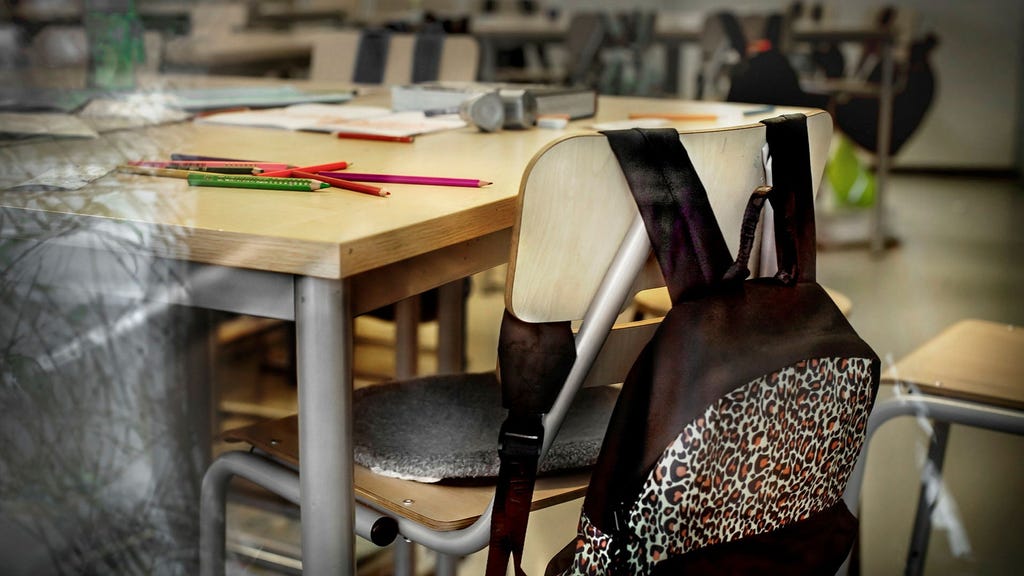The increasing pressure on teachers from parents and students is a growing concern within the education system. A survey conducted by the Swedish Teachers’ Union revealed that over half of the teachers surveyed reported facing unreasonable demands from parents at least once in the past year. These demands range from requests for individualized instruction tailored to their child’s specific needs, to insistence on additional support measures, and even pressure to award higher grades. This escalating parental involvement, often characterized by a sense of entitlement and a disregard for the teacher’s professional judgment, is creating a challenging and sometimes hostile environment for educators. The presence of legal representatives further exacerbates this issue, adding a layer of formality and intimidation to what should be a collaborative discussion about the student’s progress and well-being.
The presence of legal counsel during parent-teacher meetings, once a rare occurrence, is becoming increasingly common. The Swedish Association of Local Authorities and Regions (SALAR) has confirmed this trend, highlighting instances where family lawyers accompany parents and students to these meetings. Britt-Marie Selin, an expert in the field of education, notes that these lawyers often challenge grades and assessments, even questioning the evaluation of individual tests. This practice can be perceived as intimidating by teachers, who feel their professional expertise is being undermined. The unannounced arrival of lawyers at schools, without prior notification, further contributes to this sense of unease and disruption. The potential consequences of this trend are significant, with concerns raised about the difficulty of recruiting and retaining teachers in an environment where their authority and professional judgment are constantly being challenged.
This phenomenon is not isolated to specific socio-economic demographics; it occurs in both affluent and socially vulnerable areas. The reasons for involving legal counsel are varied. In some cases, parents seek legal representation after the school has filed a report expressing concern about the child’s well-being, a process known as an ”orosanmälan” in Swedish. Other instances involve situations where the student has misbehaved, engaged in threatening behavior, or committed acts of violence against school staff. In these scenarios, the lawyer’s role is often to question the allegations, demand the names of all individuals involved, and protect the student’s rights. While this is a legitimate function of legal representation, the manner in which it is sometimes exercised can be perceived as confrontational and even threatening by school staff.
Veronika Fridlund, a researcher at the Swedish Teachers’ Union, has authored several reports documenting the various forms of pressure faced by teachers. While the presence of legal representatives at school meetings is an extreme example, Fridlund’s research reveals a broader pattern of parental pressure tactics. These include threats to involve lawyers, public shaming of teachers perceived to have awarded low grades on social media platforms, and threats to contact media outlets or file complaints with the Swedish Schools Inspectorate. These actions create a climate of fear and anxiety for teachers, diverting their time and energy away from their primary responsibility: educating students. This ultimately impacts the entire classroom, as valuable time that should be dedicated to teaching and learning is instead consumed by managing these external pressures.
The cumulative effect of these pressures contributes significantly to teacher workload and stress. The time spent addressing unreasonable demands and navigating confrontations with parents detracts from the time available for lesson planning, student interaction, and other essential teaching duties. This increased workload and the associated stress can lead to burnout, decreased job satisfaction, and ultimately, contribute to the growing shortage of teachers. The long-term implications for the education system are concerning. If this trend continues, it could further exacerbate the challenges of attracting and retaining qualified educators, ultimately impacting the quality of education provided to students.
Addressing this growing issue requires a multi-pronged approach. Clear communication and established protocols for parent-teacher interactions are essential. Schools need to establish clear boundaries and expectations for parental involvement, emphasizing the importance of respectful communication and collaboration. Providing teachers with training and support to manage challenging interactions with parents is also crucial. Furthermore, a broader societal conversation is needed about the role of parents and teachers in education, emphasizing the importance of mutual respect, trust, and a shared commitment to the student’s well-being. Ultimately, creating a supportive and respectful environment for teachers is crucial not only for their well-being but also for the success of all students.














